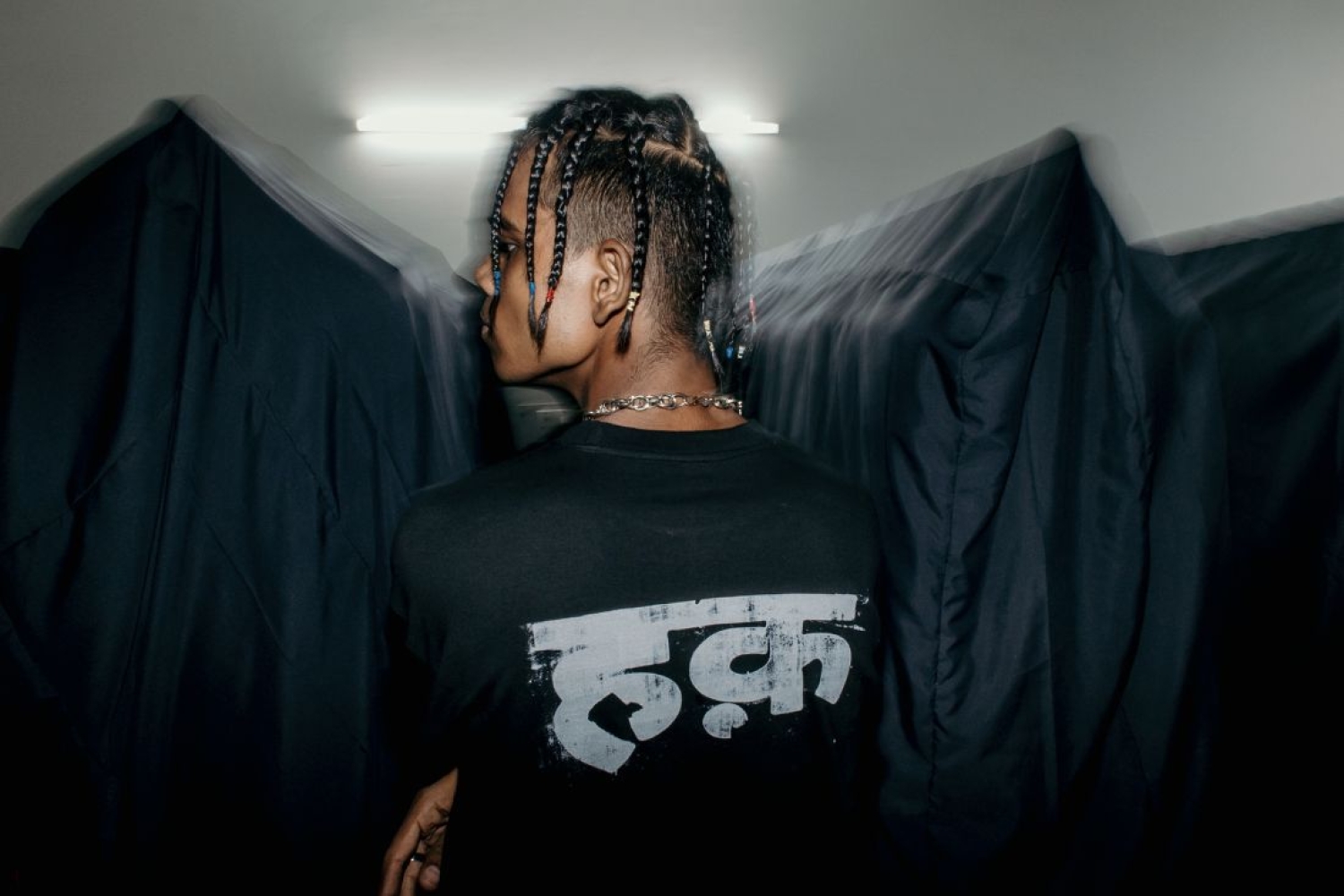

Designer Arjun Saluja and Sunny Chaudhary aka Power, have joined forces to create a project that merges elements of their labels, Rishta and Power Drip. Their initiative, Haq Collective, aims to redefine streetwear in India, reconnecting with its original meaning that has often been lost in today’s fashion landscape.
The concept emerged from a show that Arjun previously created. 'We want to take local ideas and translate them into a form of expression,' Arjun explains. The term 'Haq' holds significant meaning—representing the right to experience freedom. For Haq, authenticity and a connection to roots are paramount, which is where Sunny’s involvement is crucial. As an active participant in street culture through his clothing and performance art, Sunny’s experiences complement Arjun’s observations. Together, they aim to create a genuine representation of street culture in India.
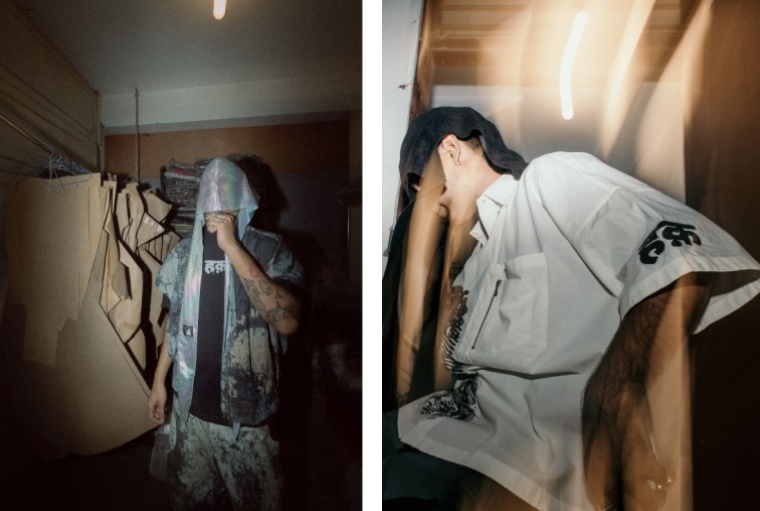
Arjun highlights the importance of Sunny’s role: 'It’s a massive contradiction when you sit in your car, inspired by the streets, yet you're not part of that environment. True ideas can only come from someone who has lived that culture. We want to capture that essence, and everything we observe will become part of Haq Collective.'
Arjun's Rishta is known for its technical craftsmanship, while Sunny's Power Drip embodies a raw, instinctive approach. Their collaboration brings together Arjun’s technical expertise and Sunny’s raw authenticity. 'It’s a beautiful interplay of aesthetics, merging two worlds,' Arjun concludes.
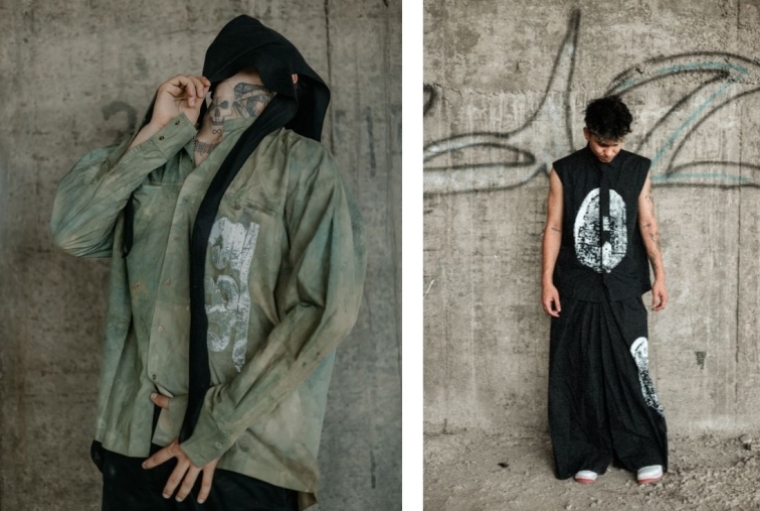
He emphasizes that Haq is distinct from Western concepts of streetwear. 'For instance, if you see someone on the streets wearing a bomber jacket with a lungi, that embodies the street culture of India, and we want Haq to represent that,' he explains, referring to it as 'mohalla couture.'
Sunny recalls how hip-hop and rap were not widely recognized in India until the release of Gully Boy. Following the pandemic, streetwear has surged in popularity. 'I've been part of this culture for a long time. Now, it’s at the forefront. I’ve witnessed its growth from the ground up. We aim to keep it authentic because today, everything is labeled as streetwear, but that’s not true,' Sunny states. Arjun adds, 'When something becomes popular, people adapt it without understanding the true essence of the art form and the struggles of the original artists. Streetwear in India is unique; it allows rappers to express themselves in their own languages.'
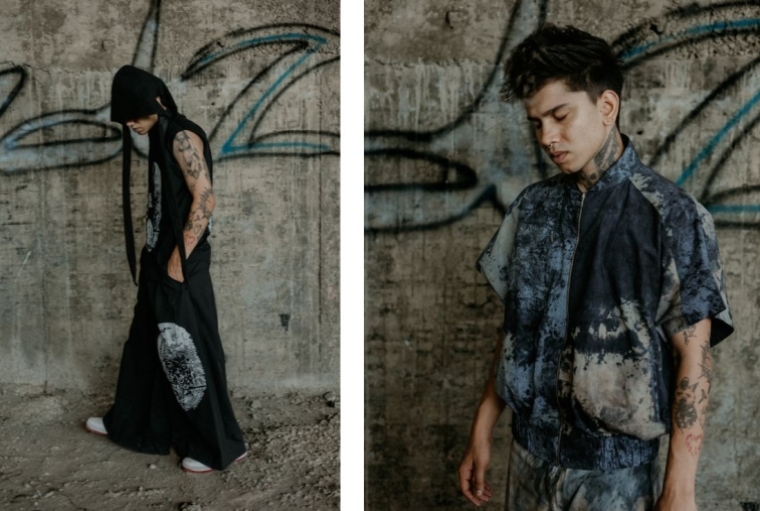
Sunny remarks, 'Who could have imagined a rapper in Bhojpuri? Now there are so many regional voices getting platforms and making names for themselves in their own languages. How amazing is that?'
The Haq Collective started with 13-14 pieces, as both Arjun and Sunny want to develop it slowly, with intricate research and collaboration. 'Collectiveness arises from collaboration,' Arjun tells me. 'We plan to work with writers, musicians, and artists, focusing on those with strong voices and showcasing visuals from the streets.'
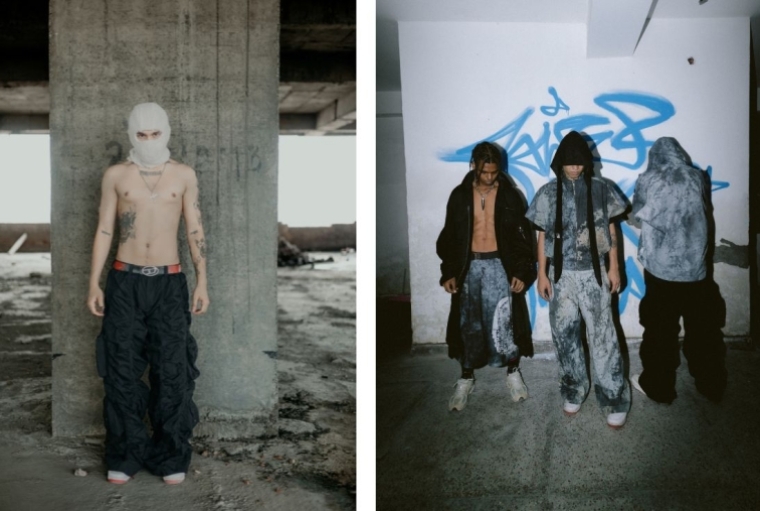
Sunny elaborates, 'We research what makes each artist unique, whether a rapper or a graffiti artist. We constantly take photographs. Clothing is the product of this entire process; it has to come from personal observation. This approach ensures authenticity through a deep engagement with culture.' He adds, 'Today, artists from the streets have stories that can inspire people. It’s not just about clothing; we want to represent their hustle. The hustle is beautiful, and there are so many talented artists emerging. We want all of them to be a part of Haq.'
By honoring local narratives and empowering artists, they aim to redefine streetwear as a true reflection of resilience. As they continue to evolve this collective, the streets of India will resonate with their vision, paving the way for a future where every piece tells a story, and every artist finds their voice.
Words Paridhi Badgotri
Date 10.10.2024